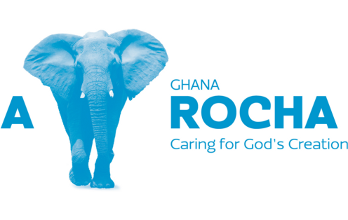Consultancy Services for Value Added Sustainable Cocoa Production, Certification & Trade
Consultancy Services for Value -Added Sustainable Cocoa Production, Certification and Trade
Atewa Landscape. Ghana
Job Category: Consultancy Service
Job Function: Project
Application Deadline: July 7, 2022
CONTEXT
The Atewa Range Forest, located in the Eastern Region of Ghana and 90km north of Ghana’s capital, Accra; forms part of the Upper Guinean forests of West Africa. It covers an area of approximatively 236 km2. It is one of only two reserves with upland evergreen ecosystem forest classification in Ghana. The forest consists of a core zone designated as ‘Atewa Range Forest Reserve’ and a surrounding buffer zone delineated at 200 m altitude and composed of farmlands and communities. The Atewa forest reserve is fringed by over 40 communities.
The Forest Reserve retains a very high diversity of species, many of which are of global significance, notably among them are Mylothis atewa, Anthene helpsi and Conraua derooi which are all endemic.
This reserve is also a hydrological gem with three major river systems, the Densu, Birim and Ayensu providing water for domestic, agricultural and industrial use to major population centres, including Accra. It is estimated that over five million people benefit from it.
Socio-economically, communities fringing the forest have over the years benefitted from the production of high-end agro-commodities like cocoa, palm oil and several food crops and vegetables. The forest landscape also provides significant Non-Timber Forest Products (NTFPs) such as bush meat, medicinal plants, food, fibre, fruits and spices which contribute significantly to local livelihoods.
However, in the last one and a half decades, miners have taken siege in the landscape, to explore the considerable gold deposits found in the area. Although agriculture is the main livelihood hub of the fringe communities, inadequate support along its value chain limits the communities from achieving their economic goals thus fueling illegal activities both on and off reserve.
Project summary
The project aims at facilitating the development of sustainable Green Value Chains (GVCs) right from production, harvesting, storage and finally to markets both local and international benefitting communities neigbouring the Atewa Range Forest, in ways that contribute to securing and enhancing the invaluable ecosystem services of water provisioning, biodiversity conservation as well as climate amelioration services.
The project is supported by the French Development Agency (AFD), and complemented by Leventis Foundation. The project started in July 2021 and will be funded until 2024. Noé is coordinating the project, whereas the implementing body is A Rocha Ghana.
The project is being to target cocoa farmers and producers in neigbouring communities around the Atewa Forest and within the Abuakwa South, Ayensuano, East Akim, Atiwa West and West Akim Districts in the Eastern Region of Ghana. The engagement will also specifically target cocoa producers in two CREMAs, the Atewa and Ayensuano CREMAs.
Purpose of the assignment
The purposes of this assignment is to promote viable sustainable cocoa production and trade value chains that enhances the ecosystems within the Atewa Forest and also in nearby areas, through capacity building and cocoa certification. A justification must therefore be made for the value chain development approach that will be adopted by the prospective agency.
It is however instructive to note that, farmers in the Atewa landscape are willing to shift away from conventional to organic/sustainable cocoa production. Adequate training to improve their technical and managerial skill will help to boost yield and quality.
This initial engagement plans to target about 150 farmers.
The developed value chain should provide some benefit to the established CREMAs (Atewa and Ayensuano) through a private-sector and community focused benefit sharing mechanism.
The purpose of this ONE YEAR assignment is to begin the necessary preparation for about 150 farmers in the project area to become certified either organic by the year 2025, or fair trade, Fair for Life or Rainforest, for example, by the end of 2023, depending on the approach that would have been considered the most adequate.
